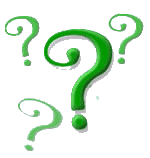Useful Spelling Rules
Correct spelling is very difficult for many students because the spellings of many words do not follow rules.
 Even when rules apply to the spellings of words:
Even when rules apply to the spellings of words:
- There are many rules to be learned.
- Many of the rules are very complicated.
- Many of the rules apply to a small number of words.
- Almost every rule has exceptions.
Still, there are some rules that apply to the spellings of words with few exceptions and that are not difficult to learn and remember. Learning and using these rules can improve your spelling.
Here are eight spelling rules you should learn and use.
- A word that ends with the sound of “v” is spelled with the letters “ve” at its end.
*Examples: shave, above, effective - The letter “i” comes before “e” except after “c.”
*Examples: believe, field, tried (but not receive) - When a word ends with “y” preceded by a consonant, form the plural of the word by changing the “y” to “i” and adding “es.”
*Examples: countries, carries, ladies  Drop the final silent “e” when adding a suffix that begins with a vowel.
Drop the final silent “e” when adding a suffix that begins with a vowel.
*Examples: changing, notable, nervous- Keep the final silent “e” when adding a suffix that begins with a consonant.
*Examples: useful, lovely, hopeless - When a one-syllable word ends in a vowel followed by a consonant, double the final consonant when adding a suffix.
*Examples: topped, swimmer, hitting - The letter “q” in a word is followed by “u.”
*Examples: quick, antique, equation - Do not change the spelling of a word when adding a prefix to it.
*Examples: remove, triangle, misspell
While some of these rules have exceptions, learning and using them will help you correctly spell many words.
